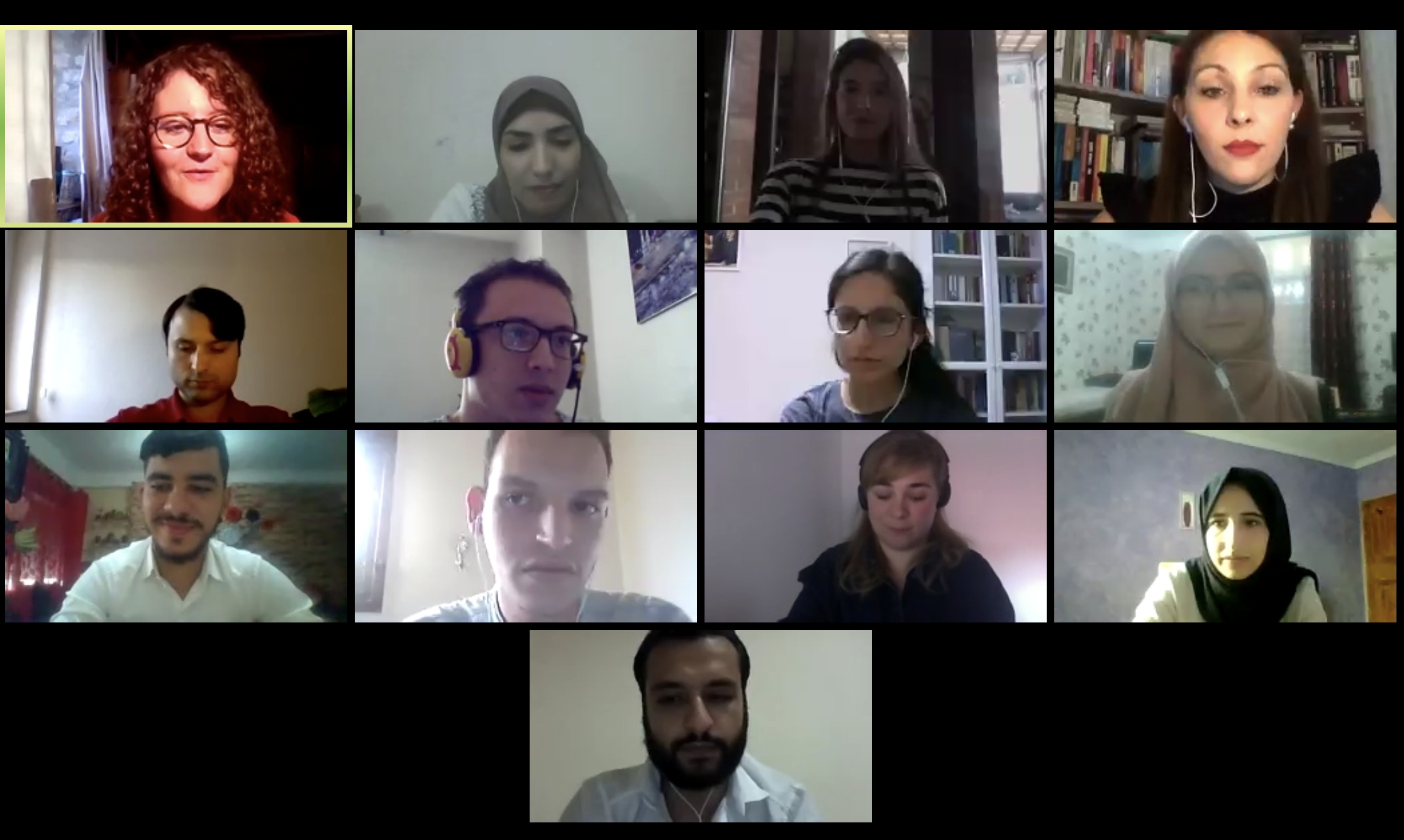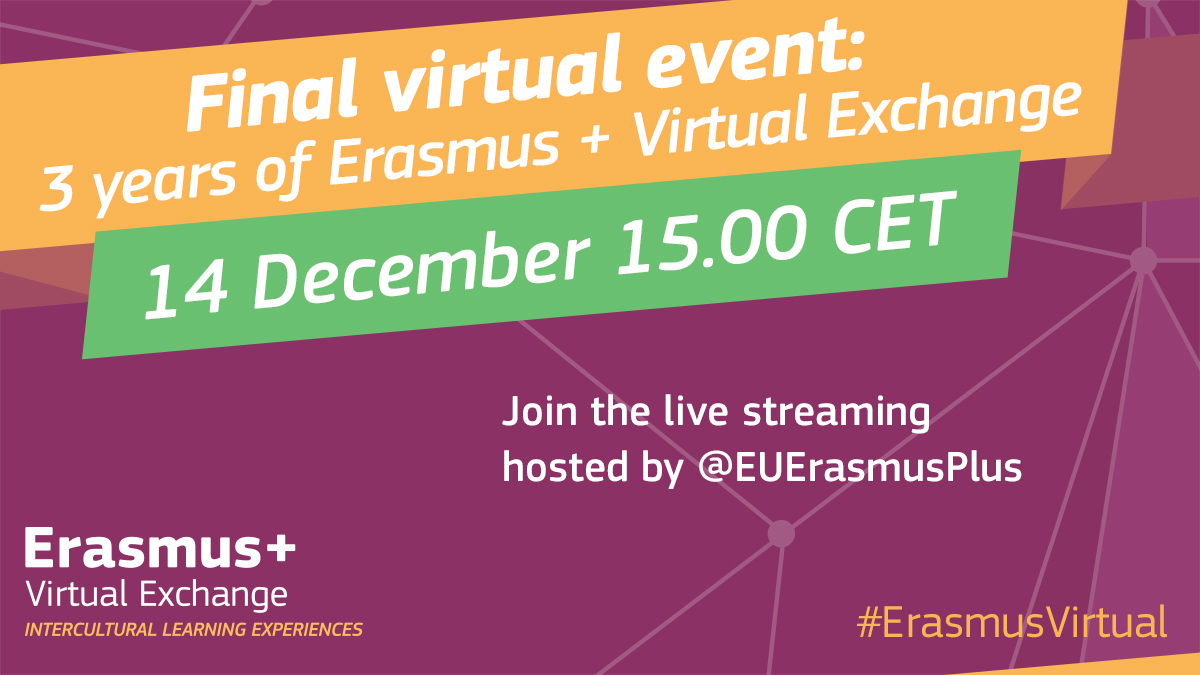Erasmus+ Virtual Exchange community highlights the impact and possibilities of Virtual Exchange in an online event discussion

The Erasmus+ Virtual Exchange project organised an online event on 1st September, 2020 aimed at emphasising the impact and possibilities of Virtual Exchange through the voice of the project’s community.
Virtual Exchange makes it possible for every young person to have meaningful, transnational and intercultural experiences online, fostering mutual understanding and skills development. Alumni, ambassadors and facilitators shared their stories as a way to stage their Virtual Exchange experiences.
Amel Mounes, from Algeria started off speaking about overcoming barriers and personal growth. She explained that when there is lack of open-mindedness, especially when dealing with taboo topics such as religions, identities or cultures, these ideas could completely change to a better view after the Virtual Exchange sessions.
Burak Yusmak, project ambassador from Germany, shared his successful experience in transnational collaboration and teamwork.
After participating as a team leader in the Erasmus+ Virtual Exchange first Euro-Med Debate Competition and winning, Burak involved his peers in a transnational online project. Shortly after, they founded the Libyan initiative: “Youth-Dialogue Platform” aimed at promoting digital diplomacy and dialogue with youth in a conflict region. “The project encouraged me to turn virtual connections into actions”, Burak highlighted.
Slavica Uzan, project Facilitator from North Macedonia, explained the importance of the role of online dialogue facilitators or “communication doctors” as she referred to them: “When we are stuck in the middle of a conflict that cannot be solved, dialogue facilitators can be the 'communication doctors' that can heal the process”, expressed Slavica.
She also mentioned that facilitation is like “living four seasons” with the group just in one semester: “Winter; fear and shyness, Spring; cultural exchange, empathy and self-awareness. Summer; activation, critical thinking, friendship, Autumn; mixed emotions, longing for the next season.”
Finally, a discussion moderated by two experienced Erasmus+ Virtual Exchange facilitators took place with participants from Egypt, Turkey, Algeria, Syria, Italy and Morocco. Participants reflected on questions such as: How can Virtual Exchange bridge the gap between education and practise? or the differences between physical and virtual exchanges, amongst others.

